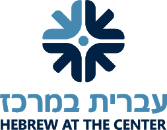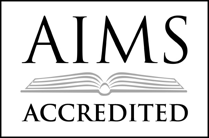Growing Through Writing
March 2, 2017 by
After their successful Ancient Egypt Exhibition this week, our Sixth Grade students sat with their written compositions and the artifacts they created, and reflected on the ways they have grown as researchers and writers. They also considered the ways in which the process of writing has helped them grow as students and human beings. Yonatan Scott noted, “Writing has made my life easier because I now can express myself. Writing gives me power.” Max Klein reflected, “When I write, I feel responsible for everything I do.”
One of the goals of the academic program is to cultivate writers and researchers who can articulate independent ideas and substantiate them with well-researched and well-reasoned arguments, skills necessary for any academic discipline and for life in general. We accomplish this by creating multiple and varied opportunities for students to engage in the whole writing process. “I have discovered how large the process of writing is: ideas, research, outlining, first draft, second draft, etc. This will help me be a better writer later on,” wrote Noah Grabel.
Our program supports students as they strive to make writing assignments personal, relevant, and purposeful. “My research and writing affected me because it helped my faith,” reflected Isaac Trommer, who researched historical and archeological evidence of the Exodus to address personal doubts about the story’s authenticity. Sarah Breeze observed that “writing can make us stop and think. [When] we take the time to write down our opinions and thoughts…and see the information we wrote, our opinions can shift.”
Throughout the Sixth Grade year, students write and write and write … they are given a broad range of assignments designed to extend their skills as well as frequent opportunities to increase facility, reduce anxiety about writing, and refine technique. Sixth Grade writing assignments range from brief reflections in class, written responses to questions, short analyses, document reviews, in-depth investigations, and work that requires multiple iterations. The breadth and depth of the writing assignments allow students to develop the skills needed to analyze documents, synthesize information, and make coherent and cogent academic arguments that include substantiation.
This week’s Ancient Egypt Exhibit featured work that resulted from a long-term research and writing assignment. Each student embarked on an independent research study on a subject of their own choosing related to Ancient Egypt. They gathered background information about Ancient Egypt, and then chose a specific question to explore. Students took notes on what they learned from a variety of print and digital sources using index cards or iPads. Afterwards, they organized the information and drafted written compositions that articulated and substantiated independent insights and academic arguments. Fully committed to the process of revision, the students read their writing aloud, invited peer editors to offer suggestions, volunteered to share their writing for community critique, and worked with the teacher on clear and specific writing goals. At our Exhibition, the Sixth Graders proudly displayed all pieces of this process: the notes, outlines, and multiple drafts. The polished, finished drafts commanded a central position at the presentation, reflecting the students’ determination, dedication, and persistence.
The range of topics the students explored through their research and writing exemplifies the sophistication of the students’ analyses and their ability to convey complex, abstract ideas through their written work. One student compared the Biblical story of Creation and the first humans with the Ancient Egyptians’ creation myth, noting how each story responds to the essential human need for contemplating our origin and for understanding human relationships. Another student studied how changes in the written language systems in Ancient Egypt helped to broaden access to reading and writing, which led to a discussion of times throughout history when access to reading and writing has been used to limit or empower people. To surface essentials of effective leadership, some students studied the examples set by Ramses II, Akhenaten, and Tutankhamen, identifying lessons about balance of power, vision, change, and succession that remain relevant today. Gender roles as expressed and challenged in Ancient Egypt became the subject of essays on Queen Nefertiti and the female pharaoh, Hatshepsut. The students’ reflections on their writing speak to their advances and insights as thoughtful academic writers and researchers. “My writing this year has helped me to be able to see the motives behind people’s actions through history,” observed Emmett Brosowsky. They seized this independent research and writing opportunity to extend their progress as writers and to powerfully convey their thinking. “I learned that … I can teach the world something through writing,” shared Gabriel Taylor.






